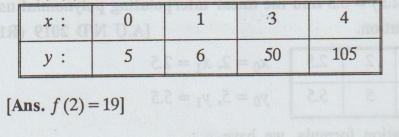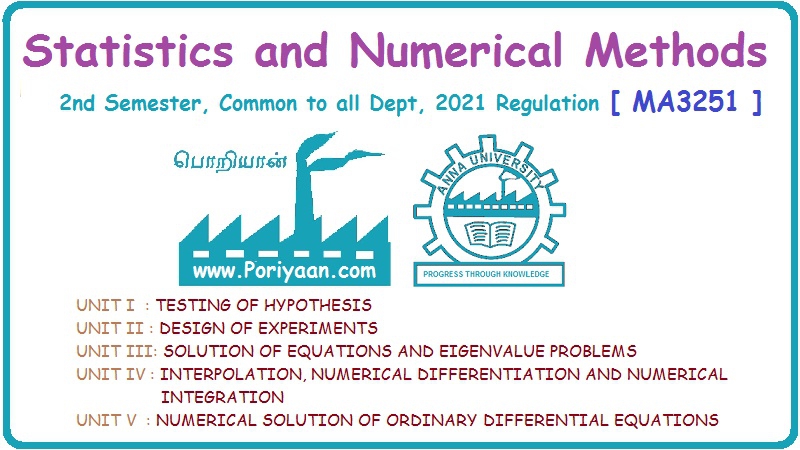Statistics and Numerical Methods: Unit IV: Interpolation, numerical differentiation and numerical integration
Exercise 4.1 [Lagrange's Interpolation]
Solved Example Problems
Statistics and Numerical Methods : Unit - IV : Interpolation, numerical differentiation and numerical integration : Exercise 4.1 [Lagrange's Interpolation]
EXERCISE 4.1 [Lagrange's Interpolation]
Using
Lagrange's interpolation formula, solve the problems below.
1.
Find ƒ (0) given

2.
Find f(x) given the table.

3.
Find f(x), also find f (2).

4.
Find y (1.50)

5.
Find ƒ (2)

[Ans. ƒ (2) = 19]
6.
Find ƒ (6).

[Ans. ƒ (6) = 294]
7.
If log (300) = 2.4771, log (304) = 2.4829, log (305) = 2.4843, log (307) =
2.4871, find log (301).
[Ans.
2.4786]
8. Find tan 33°.
[Ans. tan 33° = 0.6494]

9.
Find y (3.5)

[Ans. y (3.5) = 1.5723]
10.
Using Lagrange's formula find the value of x when f(x) = 15 from the given
data.

[Ans. 11.5]
11.
Find the value of x corresponding to y = 100 from the table.

[Ans. 8.656]
12.
Find the value of x correct to one decimal place for which y = 7, given

[Ans. 1.8572]
13.
The following table gives the values of the probability integral
 corresponding to certain values of x. For what value of x in this integral is
equal to 0.5.
corresponding to certain values of x. For what value of x in this integral is
equal to 0.5.

[Ans. 0.4769337]
14.
Given:

find
y (2).
[Ans.
y (2) = 0 ]
15.
Given:

find
ƒ (4).
16.
Find y' (1), if

[Ans. y' (1)=-3]
Statistics and Numerical Methods: Unit IV: Interpolation, numerical differentiation and numerical integration : Tag: : Solved Example Problems - Exercise 4.1 [Lagrange's Interpolation]
Related Topics
Related Subjects
Statistics and Numerical Methods
MA3251 2nd Semester 2021 Regulation M2 Engineering Mathematics 2 | 2nd Semester Common to all Dept 2021 Regulation
